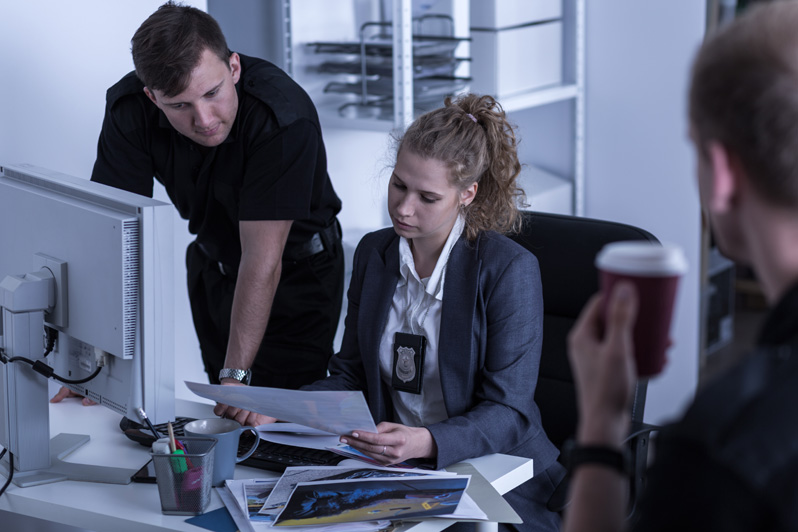

A misdemeanor or felony conviction can affect your life in multiple aspects. Besides the risk of getting punished with a huge fine or months behind bars, criminal convictions can haunt you for the rest of your life. Many people with criminal convictions on their record risk getting rejected by employers, colleges, and landlords, among other negative consequences. Therefore, your priority should be to seek a favorable outcome by working with a skilled lawyer.
In some cases, law enforcement officers make mistakes during criminal investigations. Therefore, re-evaluating this evidence can reveal some errors that can help your attorney poke holes in the evidence and question the credibility of the charges against you. At John D. & Eric G. Johnson Law Firm, our Louisiana criminal defense lawyers can build a strong defense for you. If you’ve been arrested or are facing any charges, call us now for a free, confidential consultation.
6 Mistakes Police Might Make During Criminal Investigation in Louisiana
Criminal investigations differ from one to another and can be triggered by various situations. However, the police often make mistakes that might be crucial in determining the course of the case. Some of these mistakes include:
1. Failure to Secure the Scene of Crime
Evidence obtained from the crime scene is crucial. Therefore, police officers must adequately secure the area to avoid the evidence getting altered. Failure to adhere to the correct procedures to keep the crime scene well-secured may lead to:
- Introduction of new evidence such as footprint, hair, and fingerprints, causing the evidence to be inconsistent
- Evidence being erased, which makes it hard to tie the crime to the perpetrator
An improperly secured crime scene can also lead to evidence mix-up, which can easily get the wrong person getting charged.
2. Gathering the Evidence Inappropriately or Inadequately
Police officers have the mandate to gather all evidence properly. Evidence may include:
- Fingerprints
- Blood
- Hair and skin cells
- Gun residue
- Weapons
- Drugs or alcohol
The method used to gather and store evidence should be appropriate and free from contamination, damage, or loss. When improperly collected evidence is sent to the lab, the results may be negative or inconclusive, affecting the case outcome.
3. Not Maintaining Chain of Custody
Chain of custody refers to the period from when the evidence is gathered until it is presented in court. If the chain of custody is broken at any point, the evidence may be deemed incredible to be used in court.
4. Violation of Miranda Rights or Other Constitutional Rights
After getting the suspect into custody, the law enforcement officer conducting the arrest is required to read the suspect their Miranda Rights. Police usually make mistakes by:
- Failing to inform the suspect of these right before questioning
- Continuing to interrogate the individual even after the suspect declares their right to remain silent and have an attorney present
A violation of your Miranda Rights by the police can be used as a defense.
5. Lack of Probable Cause
Essentially, police officers need to have a reasonable cause to stop, examine, or arrest anyone. Suspicion, race, or assumption cannot be used as probable cause. Besides, a search or arrest warrant must be served to the suspect before their home is raided or an arrest is conducted. Mistakes that can be substantial enough to possibly make your charges reduced or dropped include:
- Fabricating or overstating the evidence against a suspect to acquire a search or arrest warrant
- Failing to state specific items to be seized during the search
- Searching for or taking hold of evidence not stated in the search warrant
- Serving the warrant outside the hours specified in the warrant
- Erroneously serving the wrong individual with the search/arrest warrant at an inappropriate place
Partner with a lawyer to make sure your rights are protected every step of the way.
6. Use of Excessive Force
It’s unlawful for police officers to use excessive force against anyone during a criminal investigation. However, this continues to be one of the most common mistakes police make during arrest or questioning. If the police used excessive force against you, we might be able to get you a favorable plea bargain with the prosecutor. Suspects also have the right to pursue civil lawsuits against officers who use excessive force against them.
Talk With an Experienced Louisiana Criminal Defense Lawyer
Have you been arrested or facing any state or federal criminal charges in Louisiana? Criminal defense attorneys at John D. & Eric G. Johnson Law Firm may be able to leverage police mistakes during the investigation to get your charges reduced or dropped entirely. We have represented many Louisiana residents facing criminal charges and will work hard to help you as well.
Our commitment after we take your case is to get you the best possible outcome. Complete this online contact form or call us at (318) 377-1555 to schedule a free and confidential consultation with an attorney.
